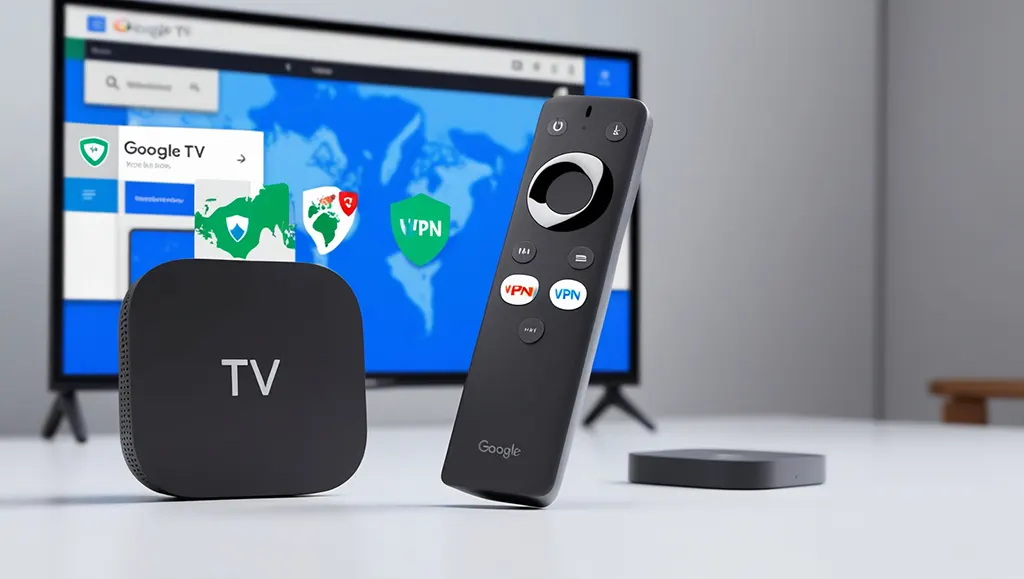How Do I Find My Company’s VPN on My Laptop Fast
Working remotely means you often need to quickly connect to your company’s VPN on your laptop. This ensures you can safely access company resources. I’ll show you how to find and connect to your company’s VPN easily.
Knowing how to access your company’s VPN is key in today’s remote work world. This guide will help you troubleshoot connection issues or connect to internal networks. You’ll learn how to use your VPN without any trouble.
Introduction to VPNs and Their Importance
Remote work is becoming more common, making secure internet connections vital. Virtual private networks (VPNs) are key for this. They create a safe, encrypted link between your device and a server. This lets you surf the web safely and privately.
What is a VPN and Why Do Companies Use Them?
A VPN, or virtual private network, sets up a secure link between your device and a server. Companies use VPNs to keep their networks safe and let employees work securely from anywhere. When you use a VPN, your internet data goes through a secure tunnel. This keeps your online actions and sensitive info safe from others.
Benefits of Using a Company’s VPN
- Enhanced Data Security: VPNs encrypt your internet traffic. This makes it hard for hackers to steal your important data like passwords or company files.
- Improved Privacy: Using a VPN hides your IP address. This makes it harder for others to track or watch your online activities.
- Bypassing Geographical Restrictions: VPNs let you access company resources that might be blocked in your area. This helps you work smoothly from anywhere.
Using a company’s VPN, remote workers get secure and private access to company networks and apps. This boosts their productivity and keeps sensitive info safe.
How to Locate Your Company’s VPN Software
Finding your company’s VPN software is the first step to connect to your secure network. This software is usually installed on your laptop or can be downloaded from your company’s IT resources. Look for a VPN app or client given by your employer. It’s made to work with their VPN setup.
Here are a few ways to find your company’s VPN software:
- Check your laptop’s program menu or search for “VPN” in the search bar. Your company’s VPN software should be listed among the installed programs.
- Visit your company’s internal IT support website or portal. They often provide a downloadable VPN client that you can install on your device.
- Ask your IT team or manager for help finding the company’s VPN software. They can guide you and give you any login details you need.
Once you’ve found the VPN software, you can connect to your company’s secure network. This lets you access internal resources like shared drives, databases, and tools you need for your job from anywhere.
Step-by-Step Guide to Connecting to Your Company’s VPN
Connecting to your company’s VPN is key to safely accessing internal resources from afar. First, find the VPN software on your laptop. Then, follow a few easy steps to connect.
Launching the VPN Software
Start by finding the VPN client on your computer. It might be a separate program or part of your system’s settings. Look for the VPN icon in your system tray or menu bar and click it to open the VPN software.
Entering Your Login Credentials
After opening the VPN client, you’ll need to enter your login details. This includes your username and password. Your company’s IT department gives you these to secure your VPN connection.
- Enter your username as instructed by your IT department.
- Input the password associated with your VPN account.
- Click the “Connect” or “Log In” button to establish the VPN connection.
Once you’ve entered your details and connected, you can access your company’s internal resources. This secure link keeps your data private and safe while you work from anywhere.
Troubleshooting Common VPN Connection Issues
Having trouble connecting to your company’s VPN can be really frustrating. But, there are steps you can take to fix these issues and get back online fast. Let’s look at the common VPN connection problems and how to solve them.
Checking Internet Connectivity
First, make sure your internet is working well. Check your Wi-Fi or ethernet connection to ensure it’s okay. If your internet is slow or keeps dropping, it might not be the VPN’s fault. It could be a problem with your internet service.
Updating the VPN Software
Outdated VPN software can also cause connection problems. Your company’s IT team might have updated the VPN client. This update is needed for a secure and stable connection. Always use the latest VPN software version by checking with IT or downloading the newest update from your company’s site.
By following these steps, you can often fix common troubleshooting company vpn connection issues and fixing vpn connection problems. If the issue still exists, don’t hesitate to contact your company’s IT support. They can help with updating vpn software or other technical issues.
how do i find my company’s vpn on my laptop
If you work remotely, using your company’s VPN is key. But finding the VPN on your laptop can be tricky, especially if it’s your first time or you’ve changed devices. Don’t worry, finding your company’s VPN on your laptop is easy with a few steps. This is true whether you’re at home or on the move.
Start by seeing if the VPN is already on your laptop. Many companies give their workers a VPN client or app that gets installed when you set up your device. Look for an icon or app with your company’s name or the word “VPN” in your start menu, search bar, or system tray.
If you can’t find the VPN software, don’t panic. Next, check your company’s IT resources like an employee portal or IT support site. Many companies offer their VPN software for download. You can usually find it in a special section or by searching for “VPN” or “remote access.”
- Locate the VPN software pre-installed on your laptop
- Check your company’s internal IT resources for the VPN software download
- Follow the instructions to install and set up the VPN client
After finding the VPN software, connecting to your company’s network is easy. Just open the VPN client, enter your login details, and follow the prompts to connect securely. With a bit of troubleshooting, you’ll be accessing your company’s resources from your laptop in no time.
Ensuring Optimal VPN Performance
It’s crucial to make your company’s VPN connection work well for smooth remote access. To boost your VPN, tweak a few settings to speed it up and make it more reliable.
Adjusting VPN Settings
Enhancing your VPN’s performance starts with adjusting its settings. You might change the server location, turn on or off certain VPN protocols, or tweak the encryption level. By doing this, you can improve vpn speed, optimize vpn connection, and customize vpn settings for your needs.
Begin by talking to your company’s IT team to find the best VPN settings for you. They know how to improve vpn speed, optimize vpn connection, and customize vpn settings. They consider your location, network conditions, and your company’s needs.
| Setting | Impact on VPN Performance |
|---|---|
| Server Location | Picking a server close to you can cut down on delay and improve vpn speed. |
| VPN Protocol | Protocols like OpenVPN or IKEv2 might give you a better optimization vpn connection. |
| Encryption Level | Choosing higher encryption can customize vpn settings for more security, but might reduce vpn speed a bit. |
By spending time to customize vpn settings and optimize vpn connection, your company’s VPN will work better. This means you can stay productive and secure while working from anywhere.

Security Best Practices for VPN Usage
Keeping your company’s virtual private network (VPN) secure is key when accessing sensitive info from afar. As an employee, it’s vital to stick to security tips to guard your data and your company’s assets. Here are some ways to make sure your vpn usage is safe and boost your vpn security.
- Keep Your VPN Software Up-to-Date: Update your VPN often to use the newest security updates and features. Old software can make your connection vulnerable to cyber threats.
- Use Strong Passwords: Make a unique and complex password for your VPN. Don’t use easy-to-guess info like your name or common phrases.
- Avoid Public Wi-Fi Networks: Don’t use public Wi-Fi spots when on your company’s vpn security measures. These networks can be risky and might let others see your VPN connection.
- Review Your Company’s VPN Policies: Get to know your company’s VPN rules and security steps. Following these rules helps keep your company’s network safe and protects sensitive data.
| Security Measure | Recommendation |
|---|---|
| VPN Software Updates | Install the latest security patches and updates regularly |
| Password Strength | Use a unique, complex password for VPN login |
| Public Wi-Fi Usage | Avoid connecting to the VPN on public networks |
| Company VPN Policies | Review and adhere to your organization’s VPN usage guidelines |
By sticking to these security tips, you can help keep your company’s sensitive info safe, even when working from afar. Remember, keeping your organization’s VPN secure is everyone’s job. Your effort in following these vpn security tips can really help.
Accessing Company Resources Through the VPN
Using your company’s VPN lets you safely get to internal company resources. This includes things like shared drives, internal websites, or business apps. Once you’re on the VPN, you can act like you’re in the office and get to these resources easily.
Connecting to Internal Networks
When you use your company’s VPN, you get a secure link to the internal network. This lets you:
- Access shared drives or file servers to get important documents and files
- Connect to internal web applications or company intranets that are only on the network
- Use business-specific software or tools that are on the internal network
This is key for employees who work from home or are always on the move. It keeps them connected and productive, even when they’re not in the office.
| Benefit | Description |
|---|---|
| Secure Access | The VPN gives a secure, encrypted link to the company’s internal network. It keeps sensitive data and resources safe. |
| Seamless Productivity | Employees can use the same tools and files they would in the office. This lets them work well from anywhere. |
| Centralized IT Management | The VPN helps the IT department keep an eye on company resources. They can make sure security rules are followed. |
Using your company’s VPN means you can easily and safely get to the resources you need to work well, no matter where you are. This ability to work remotely is a big plus of using a VPN for work.
Benefits of Using a VPN at Home or on the Go
As a remote worker, using your company’s VPN has many perks. It helps you stay safe and private online. You can also get past location blocks and see company content from anywhere.
Using a company VPN at home boosts your security. It encrypts your internet traffic, keeping your info safe from hackers. This is key when you’re working on secret projects or checking sensitive data at home.
Traveling and using a VPN is also a smart move. Public Wi-Fi spots can be risky for your data. But with your company’s VPN, your online actions stay safe and private, even in risky places.
Working remotely with a company VPN has more perks than just security. It lets you access company files, tools, and apps like you’re in the office. This makes working from afar more efficient and helps you stay part of the team.
Using your company’s VPN is a smart choice, whether you’re at home or away. It keeps your data safe, private, and easy to reach. This way, you can work together with your team securely, no matter where you are.
Tips for Maintaining a Secure VPN Connection
Keeping your VPN connection secure is vital for protecting your company’s sensitive info. It also keeps your remote work private. As a pro, I’ve found that using VPNs wisely is crucial for a secure connection. Here are some key tips to keep your VPN safe and reliable.
- Keep Your VPN Software Up-to-Date: Update your VPN software often. This ensures you have the newest security updates and features. It helps protect your connection from new threats.
- Avoid Public Wi-Fi While Connected: Using public Wi-Fi with your company’s VPN can risk your connection’s security. Always choose private, trusted networks when you can.
- Log Out When Finished: Always log out of the VPN after your work is done. This stops others from accessing your company’s resources without permission.
- Be Mindful of Your Surroundings: When using the VPN for sensitive info, be aware of your surroundings. Watch out for security risks like people watching or listening in.
By sticking to these best practices for VPN usage, you can keep your company’s data safe. And you’ll make sure your VPN security stays strong, even when working remotely.
Alternative VPN Solutions for Remote Work
Using your company’s VPN is usually the best way to work from home. But sometimes, you might need other VPN options. This could be if you’re using a device not managed by your company or if you can’t get to certain resources through your company’s VPN. In these situations, looking into vpn alternatives for remote employees or other secure ways to access the internet might be a good idea.
For remote workers, using a personal alternative vpn options for remote work is a great choice. Services like NordVPN, ExpressVPN, or Surfshark give you secure internet access from anywhere. They’re great if you can’t use your company’s VPN or if you’re working on a device you own.
Another option is cloud-based remote work vpn solutions. Companies like Microsoft Azure or Amazon Web Services offer these. They let you create a secure virtual network that you can get to from anywhere. This is a good choice if you need to use company resources while working from home.
- Personal VPN services like NordVPN, ExpressVPN, or Surfshark can provide secure internet access for remote work
- Cloud-based VPN solutions from Microsoft Azure or Amazon Web Services offer virtual network access for remote employees
- These alternatives can be useful if you need to access resources not available through your company’s VPN or are working on a personal device
When using alternative vpn options for remote work, always put security first. Make sure you’re protecting your company’s data and resources. Talk to your IT department or security team to find the best remote access solutions for your company.
Conclusion
In this guide, I showed you how to find and connect to your company’s VPN on your laptop. You now know the basics of VPNs and why they’re important. This knowledge lets you securely access your company’s internal resources from anywhere.
It’s important to fix any connection problems and make your VPN work better. Also, follow security tips to keep your VPN use safe. If you need help, always ask your company’s IT team.
Using your company’s VPN keeps your online activities safe. It also helps you work with your team and use important business apps, even from home. With what you’ve learned here, you can use your company’s VPN to its fullest and improve your work.




